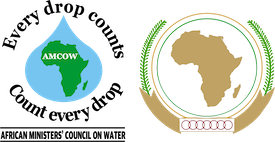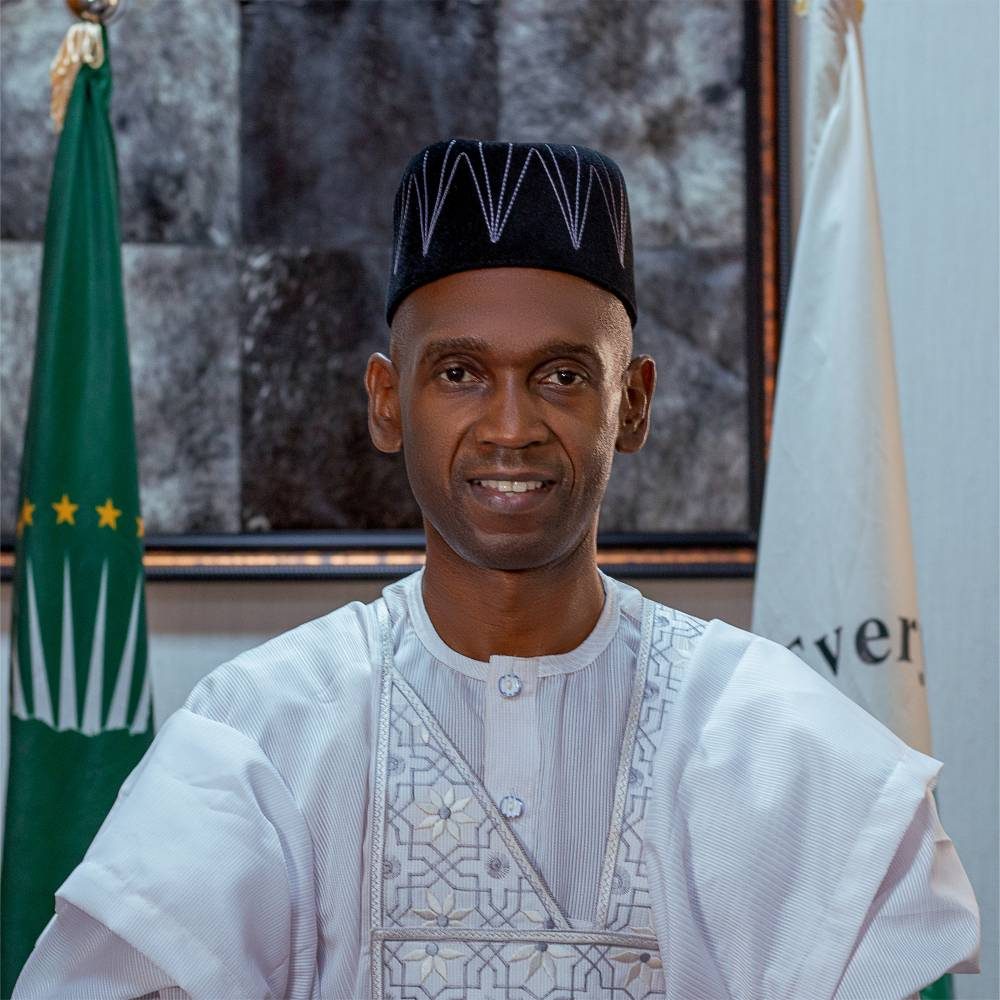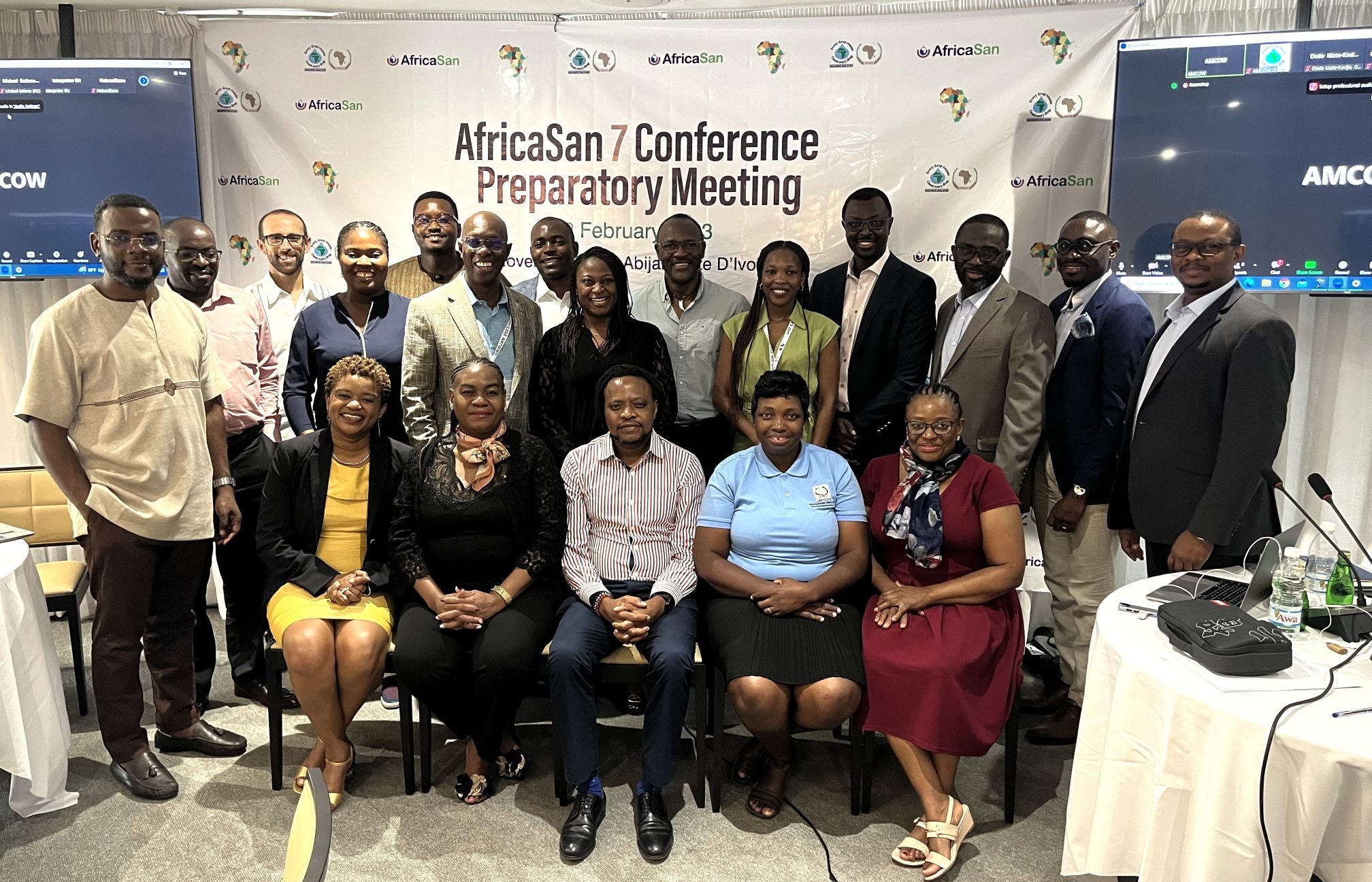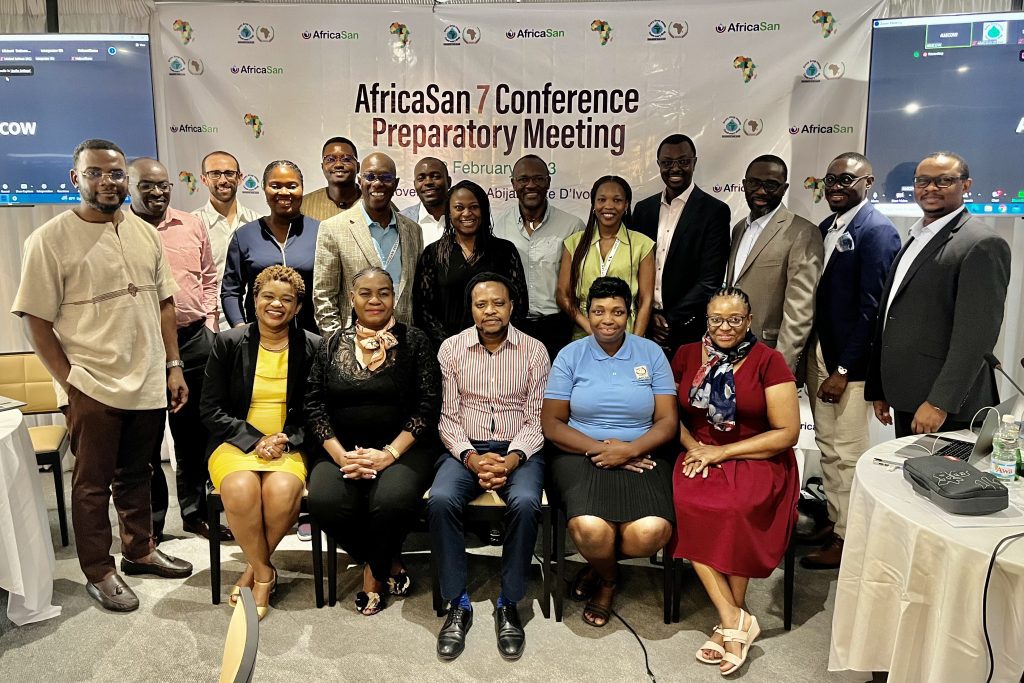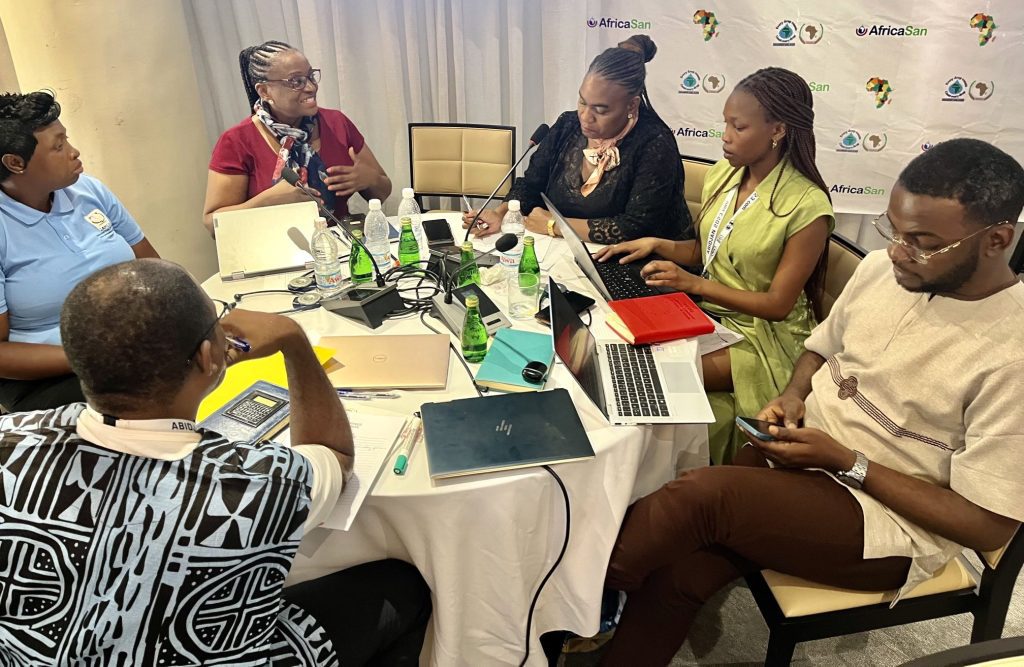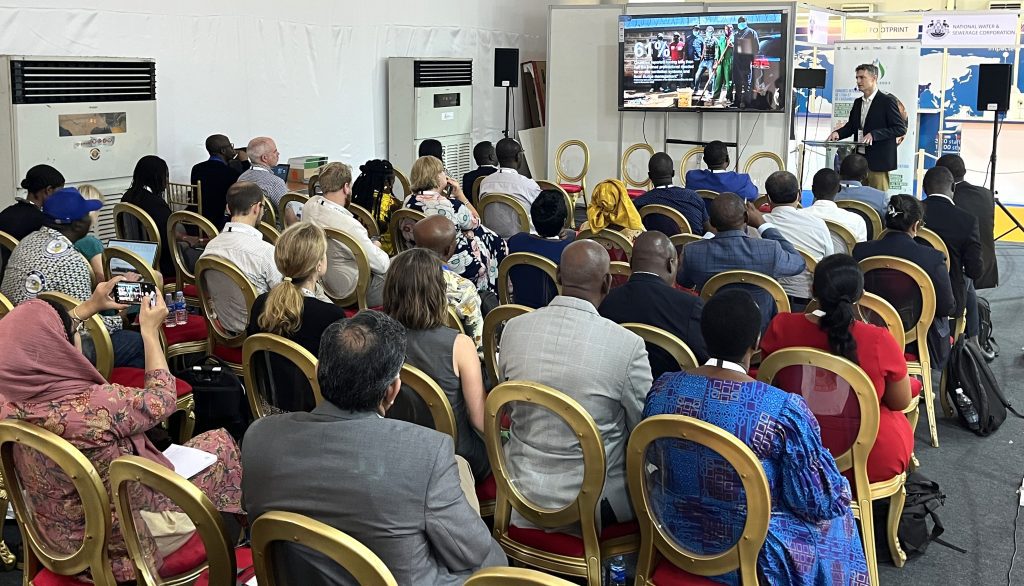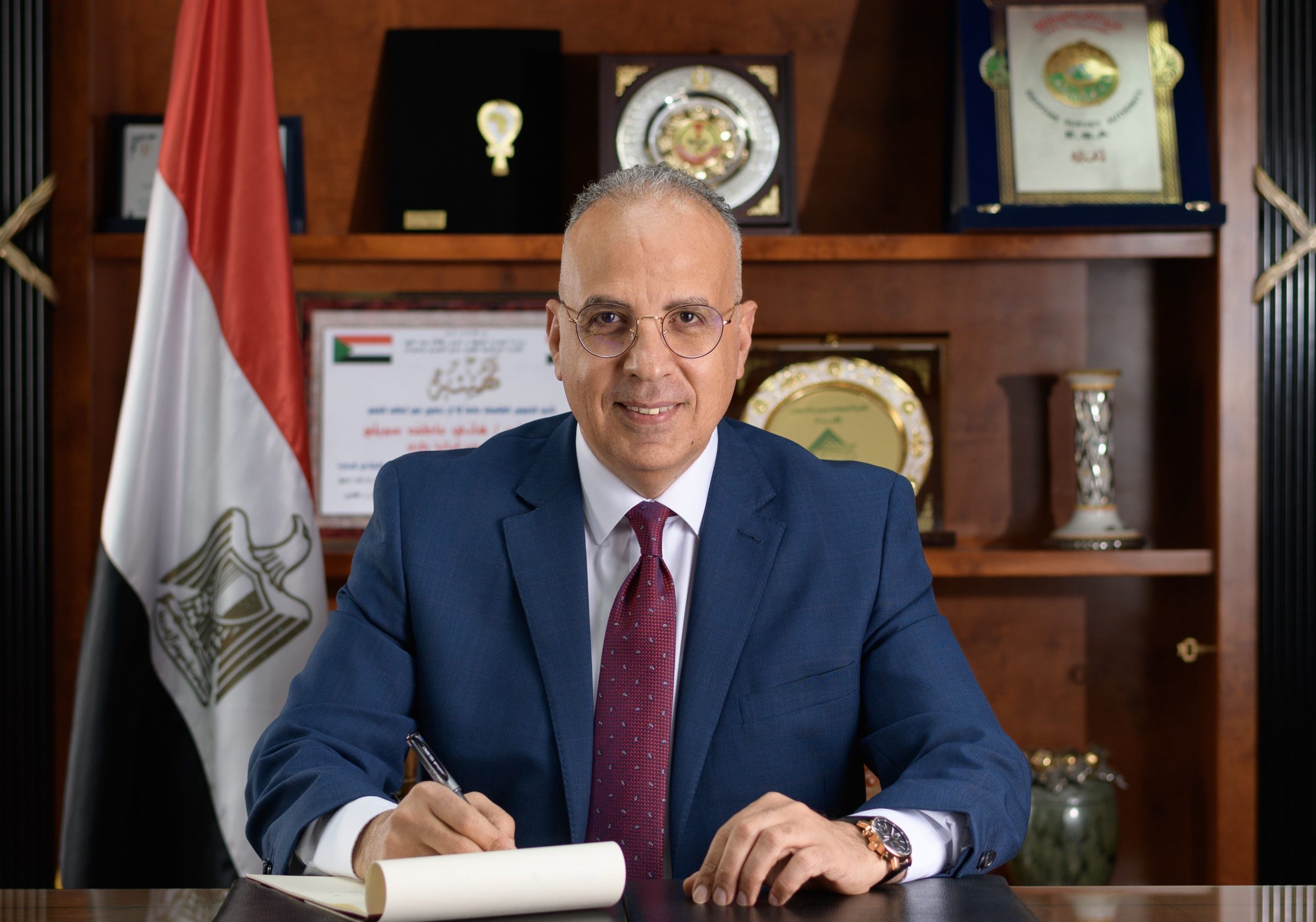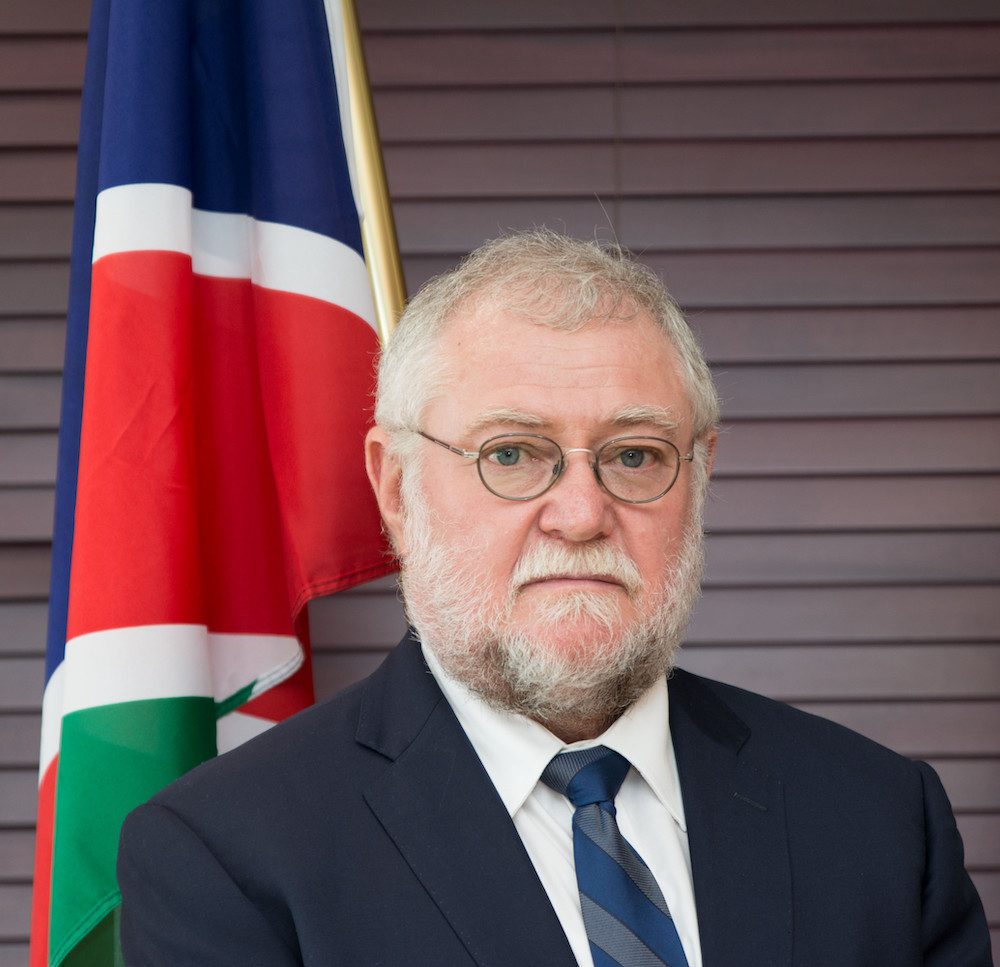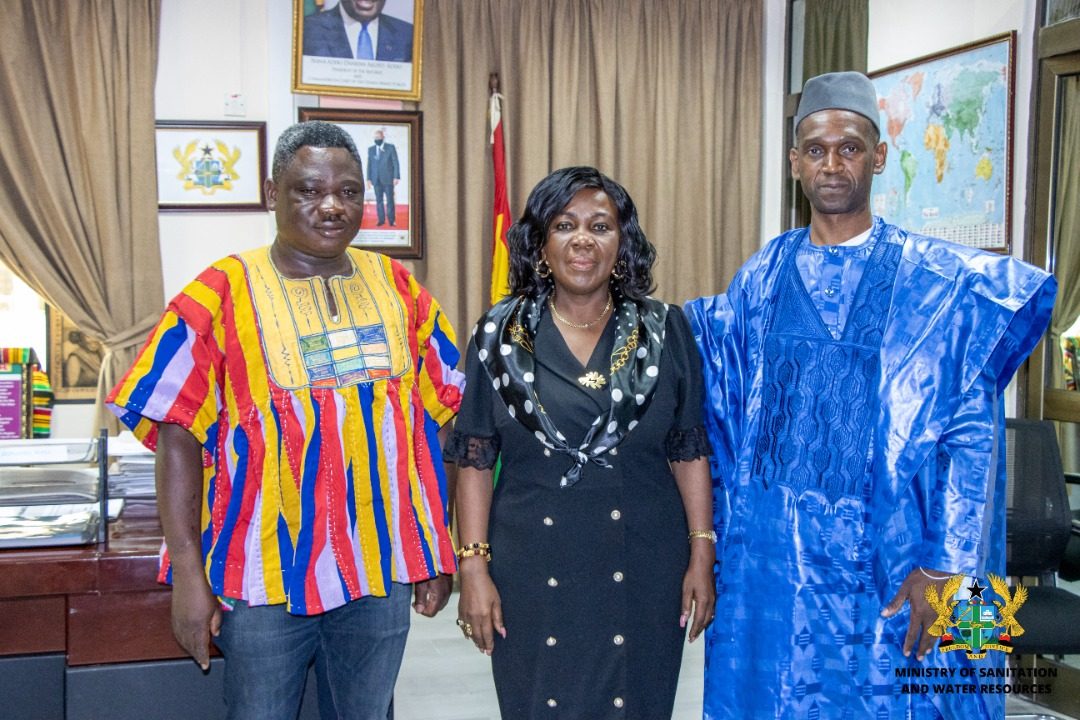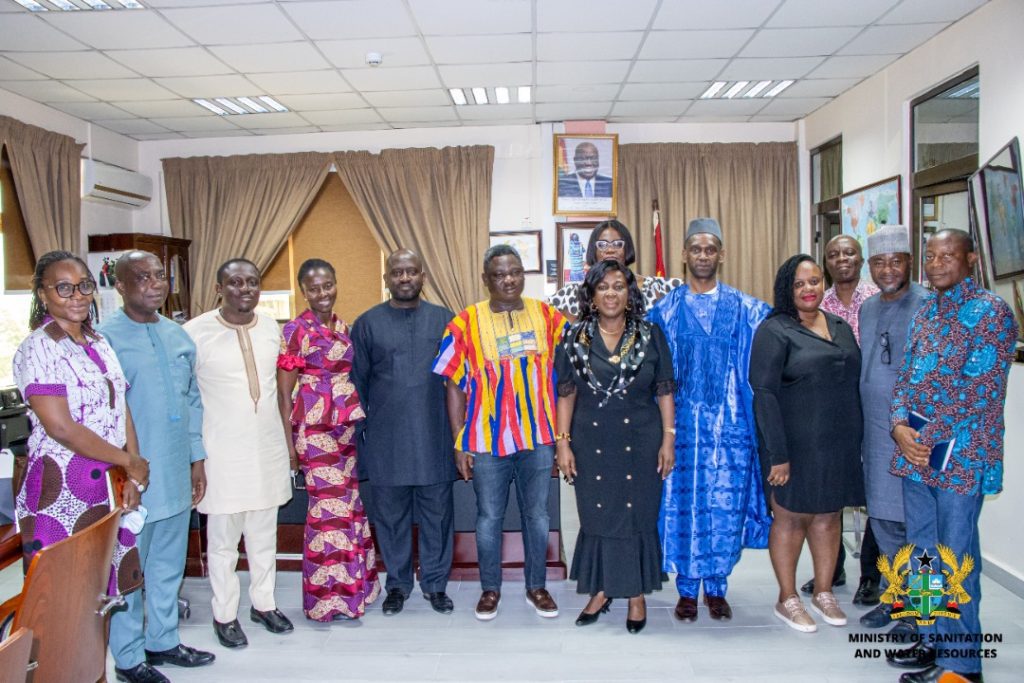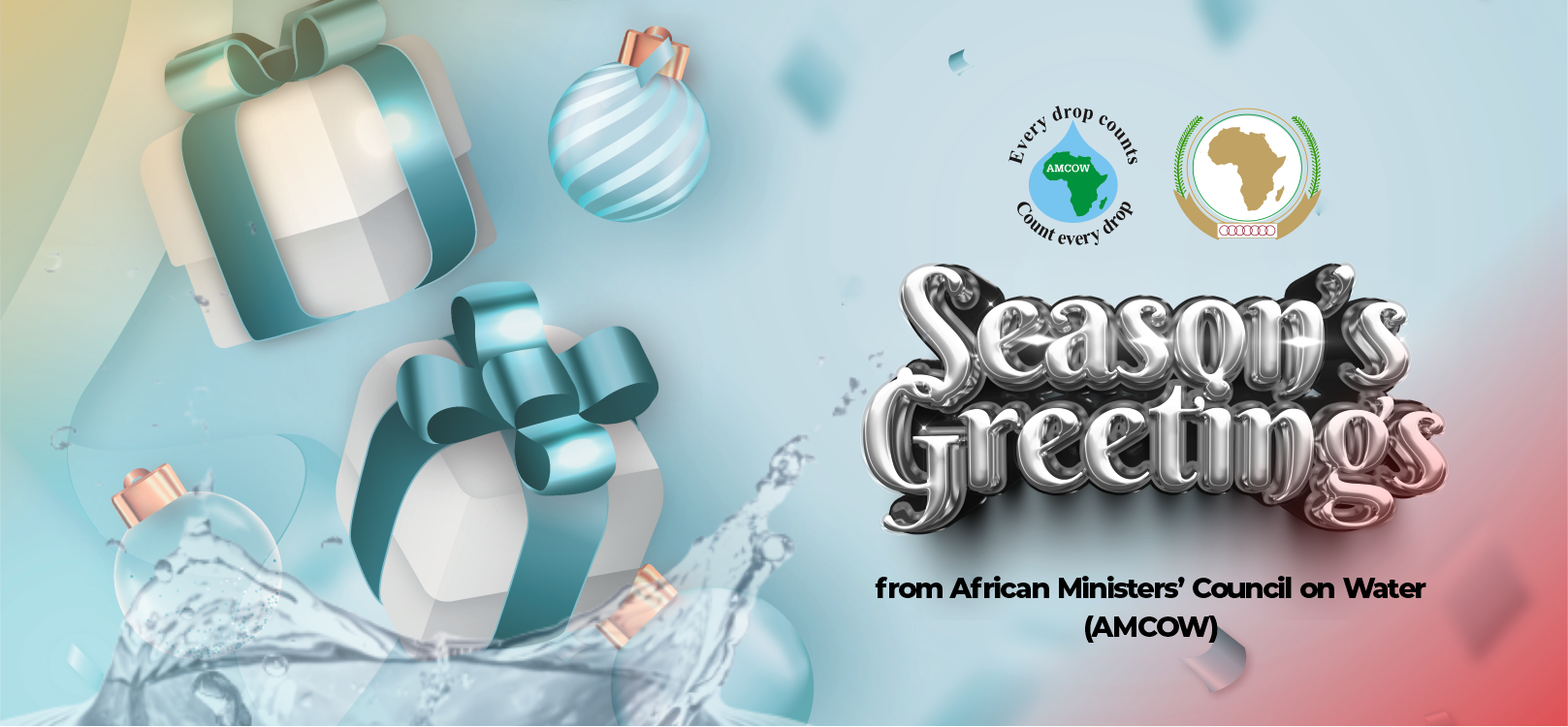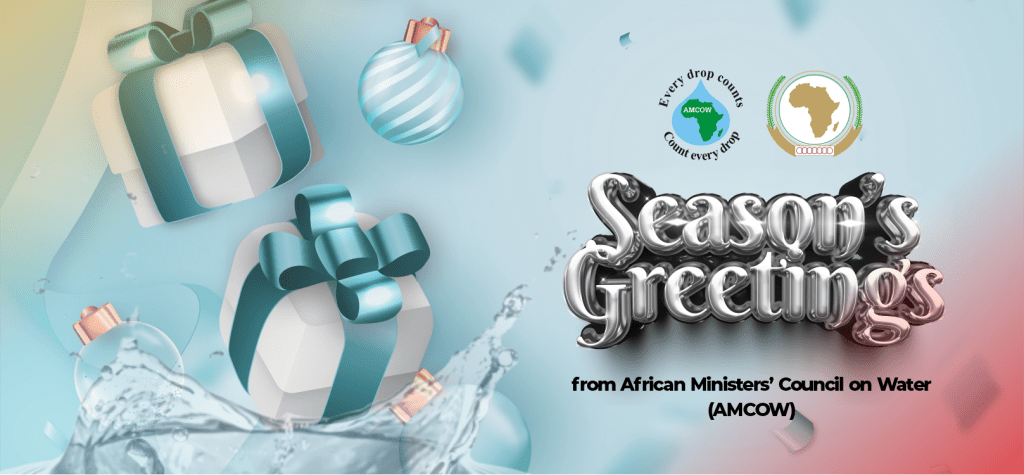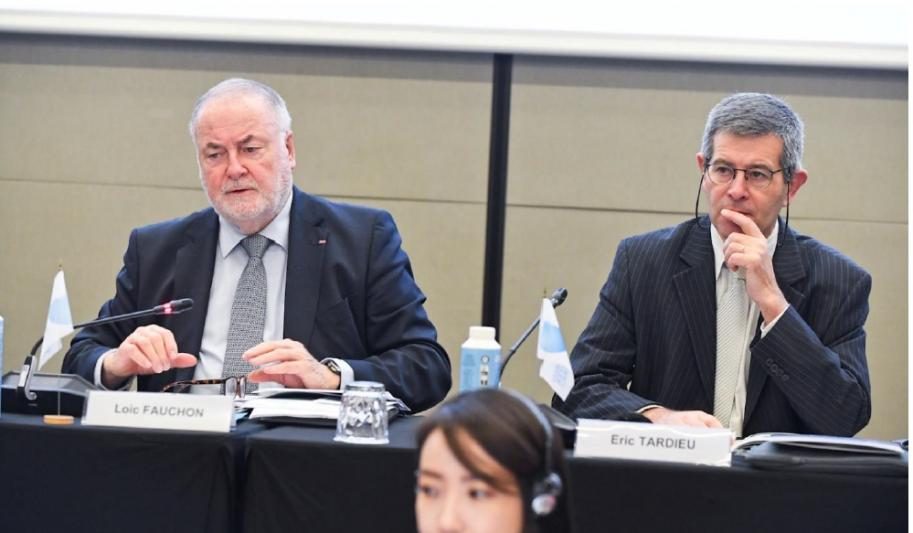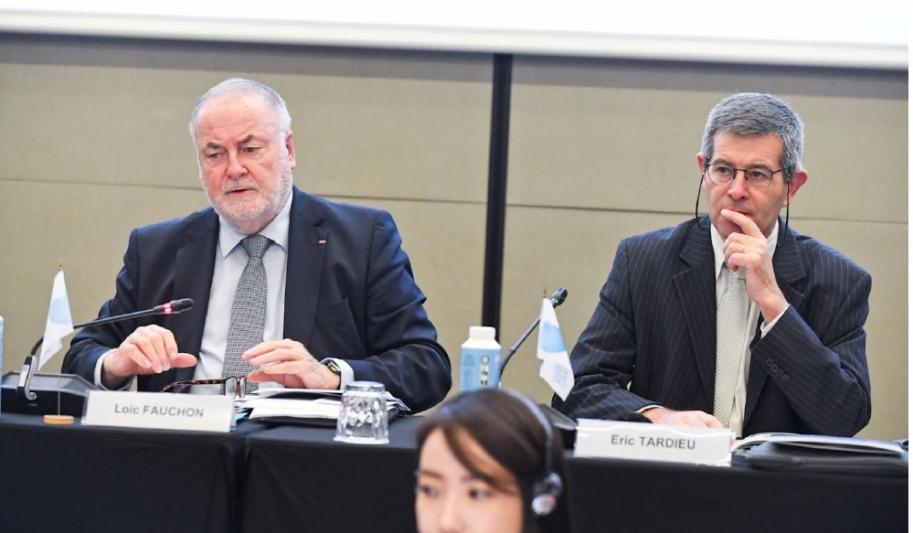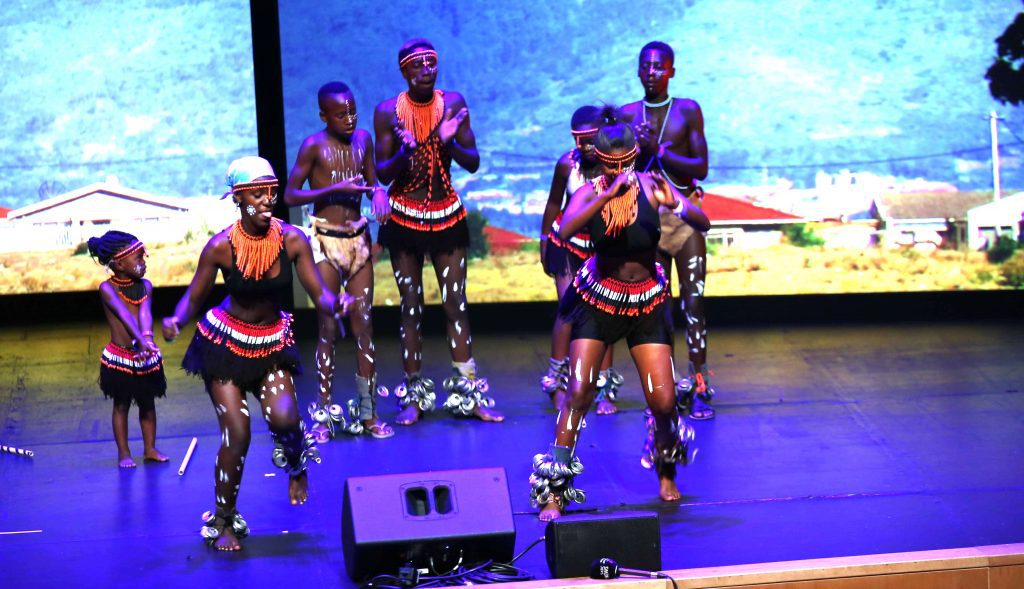Request for Proposal: Independent Mid-term Evaluation of the AMCOW Strategic Operational Plan (SOP) 2020 – 2024
Publication Date: 17th March 2023
Background
The African Ministers’ Council on Water (AMCOW) is an autonomous African intergovernmental body formed in 2002 to provide a coordinating platform for water policy dialogue on the African continent and promote sustainable management and development of the continent’s water resources with a focus on expanding access to water supply and sanitation services in Africa. AMCOW serves as a delivery mechanism on water and sanitation to the Specialized Technical Committee (STC) on Agriculture, Rural Development, Water and Environment (ARDWE) of the African Union Commission.
To achieve its mission, AMCOW developed a twelve-year Strategic Plan (SP) 2018-2030 to guide its activities and initiatives. The development of the SP 2018-2030 was a collaborative effort involving AMCOW’s Executive Committee, staff, and various stakeholders. The process involved a comprehensive review of AMCOW’s past performance, analysis of the current water sector landscape in Africa, and consultations with relevant partners.
The SP articulates the high-level vision, mission, core values and overarching priorities of the Organization. It outlines a set of long-term goals and strategic objectives with a 2030 horizon as well as identifies areas of focus for the 2020-2024 financial period. The Operating Plan 2020-2024 translates the strategy into specific actions by defining outputs to be delivered (i.e. lower-level results) and annual milestones to be achieved. It also lists planned activities, indicates the resources available, and outlines performance indicators intended to measure progress in achieving the strategic objectives over the next 5 years. Building on the framework of strategic and cross-cutting priorities and actions laid out in the Strategy, the SOP articulates AMCOW’s values and theory of change that shape the organisation’s approach to its mission to “Provide political leadership, policy direction and advocacy in the provision, use and management of water resources for sustainable social and economic development and maintenance of African ecosystems”. Given the significant investments made in developing and implementing the SOP 2020-2024, AMCOW is committed to monitoring and evaluating its implementation to ensure its relevance and effectiveness in achieving its strategic objectives. As such, AMCOW is seeking to engage the services of a team of experienced and professional independent evaluator or company to undertake a mid-term evaluation (MTE) of the implementation of the SOP 2020-2024.
Rationale for the mid-term review
This mid-term review fulfils the AMCOW Monitoring and Evaluation Strategy for the purpose of learning and reflecting on the delivery of AMCOW’s work priorities. The evaluation will provide a critical assessment of progress and recommendations for enhancing AMCOW’s effectiveness in the remaining years of the SOP as well as the next five-year planning period.
Evaluation objective
The objectives of this mid-term evaluation are to:
- evaluate the relevance and coherence of both the SOP 2020-2024 and the triennial Work Programme 2022-24 vis-à-vis achieving the goals of the AMCOW Strategy 2018 – 2030;
- benchmark achievements to-date and the rate of progress against the expected results and outcomes of implementing SOP 2020-2024, taking into consideration the updates to the plan as contained in the Triennial Work Programme 2022-2024.
- analyse the challenges faced and draw lessons to enhance organisational developmental learning.
- develop recommendations to assure:
o efficiency of implementation going forward; and
o alignment of planned activities for the period 2023 – 2024 with both the expected SOP outcomes and emerging urgent water and sanitation sector needs at Member States’ level.
Evaluation findings will be used by the Secretariat and stakeholders to understand what, if anything, needs to be approached differently to assure the eventual attainment of the AMCOW Strategy 2018-2030. The evaluation is also expected to document lessons and good practices to inform the approaches for the period 2023-2024 and beyond.
Evaluation approach and key questions
The evaluation should be conducted in the context of criteria and approaches for international development assistance as established by the OECD/DAC Evaluation Quality Standard (the relevance, effectiveness, coherence, sustainability, and impact) of the AMCOW Strategic Operational Plan (SOP). The MTE will include an evaluation matrix with evaluation questions, qualitative and quantitative indicators and data collection techniques designed to be gender sensitive and maximize participation.
Relevance:
· To what extent does the SOP 2020-2024 respond to the goals of the AMCOW Strategy 2018-2030?
· To what extent are the outcomes of the SOP 2020-2024 addressing the African water vision and the sustainable development water agenda?
· What emerging issues in the water sector in Africa need to be taken into consideration vis-à-vis the relevance of the AMCOW Strategy 2018-2030 and the SOP 2020-2024 to achieve water and sanitation goals in Africa.
Effectiveness:
· What partnerships have been mobilised to support the implementation of the SOP 2020-2024?
· What resources mobilisation mechanisms have been developed to assure attainment of the expected outcomes of the SOP 2020-2024?
Efficiency:
· To what extent has the SOP 2020-2024 been implemented as planned and achieving the expected results
Sustainability:
· What mechanisms are being put in place to assure continuity of the outcomes and impacts of the SOP 2020-2024 in the long-term
· To what extent do the Member States identify with the continental policy initiatives being implemented within the framework of the SOP 2020-2024
Coherence:
· In the course of implementing the SOP 2020-2024, what are the emerging areas of potential redundancy, duplication, overlaps and or gaps vis-à-vis ongoing efforts to achieve the goals of the water and sanitation sector in Africa? It is recognised that the pursuit of the Africa water vision is supported mandated institutions including the AUC, AfDB, UNECA, and RECs/R/LBOs, all of which have got ongoing water programmes.
Impact:
· What monitoring and evaluation mechanisms are in place to track the attainment of results, outcomes and the impact of the SOP 2020-2024.
The evaluation will use these questions as a guide to assess the implementation of the SOP 2020-2024 and provide recommendations for improvement or additional .
The evaluator/evaluation team will be expected to develop a more detailed evaluation methodology at the inception phase. The aim is to explain how the various criteria will be addressed using a mixed and triangulation methodology, to increase the validity and rigor of the evaluation findings. The AMCOW Secretariat and relevant stakeholders are available for consultation during the data collection and reporting phases.
AMCOW Secretariat adheres to the United Nations Evaluation Group (UNEG) evaluation norms and standards as well as to the OECD/DAC Evaluation Quality Standards. The evaluation is an independent evaluation, and the final methodology and evaluation questions will be determined by the consultant in consultation with AMCOW Secretariat. A virtual workshop will be organized toward the end of the evaluation, with participation from the respective stakeholders and AMCOW Secretariat Staff. This will provide the opportunity to present the preliminary findings, invite the participants to validate them and fill in any data gaps. Compilations of a draft evaluation report will follow thereafter.
The draft will be subject to a methodological review and upon the necessary adjustments, it will be circulated among the key stakeholders.
The key deliverables of the evaluation are:
- An inception report that clearly outlines the evaluation approach and tools to be used. The inception report must also include an evaluation matrix which includes the methodology to be used, indicators, evaluation questions and detailed work plan.
- A draft evaluation report in English. The draft of the report will be presented to AMCOW for comments and inputs, after which the evaluator will finalize the report and submit the final evaluation report to AMCOW Secretariat.
- A final evaluation report that reflects comments/feedback from stakeholders consolidated by the AMCOW team as well as annexes, including electronic copies of raw data, copies of the data collection tool, the list of staff and stakeholders interviewed, or organizations included in surveys.
- Report submission shall be followed by a briefing session to present findings and recommendations.
A two-page evaluation brief in English language.
The evaluation fee is all-inclusive and should take approximately 30 effective working days spread over a period of 2 calendar months from April to June 2023. The financial proposal should include the evaluator’s daily rate and a breakdown of the number of days for each of the tasks planned under the methodology. If travel becomes possible, all costs related to flights, hotel accommodation, trip to AMCOW Secretariat and any other cost associated with a field evaluation should be indicated as a separate item. Disbursement of the evaluation consultancy fees will be paid upon satisfactory submission and approval by AMCOW Secretariat.
Application procedure:
Qualified interested candidates or teams should submit their proposal (maximum 10 pages excluding CVs), including:
- Detailed CVs
- Technical offer describing in detail the approach and methodologies for the assignment.
- Financial offer (budget) including estimated working days for above-mentioned deliverables and daily rate.
- A recent evaluation report example.
- A list of previous evaluations that are relevant to the context and subject matter of this assignment, indicating the role played by the consultant(s) applying (they can be highlighted in the CV)
- A statement confirming their availability to conduct this assignment in the period stated, and the daily professional fee expressed in US dollars (being a home-based assignment no other extra cost will be considered)
- Two references of clients (mails and phone to be potentially contacted).
Women are encouraged to apply.
Qualification and eligibility:
The evaluator or evaluation team are expected to have the following minimum qualifications and experience:
- Minimum master’s degree in social research and/or evaluation methods, social science, Development studies, or similar disciplines.
- Minimum of 10 years of experience in evaluating development programmes, Institutions or initiatives including Theory of change approach on evaluation programming, and Results Based Management.
- Demonstrated knowledge of Africa intergovernmental organisation and familiarity with the Water and Sanitation sector
- A good working knowledge of qualitative and quantitative data analysis techniques quantitative data analysis techniques and report writing.
- Knowledge of AMCOW roles and mandate is an asset.
- Strong conceptual, analytical, and communicational abilities.
- Demonstrated ability to deliver quality assignments under tight timeframes and managing an evaluation remotely.
This application is open to all individuals / companies. In the case of a company, you are expected to provide the following:
- Profile
References list, a copy catalogue of previous related work done will be an added advantage.
Assessment of proposal:
The proposal will be assessed considering the following criteria:
- Team leader and/or team member: 50%
- Qualifications required in the ToRs
- Samples of previous work
- Proposed methodology and approach: 30%
- Overall concord between the ToR requirements and proposal
- Detailed proposal with main tasks, including sound methodology to achieve key outputs
- Proposal presents a realistic implementation timeline
3. Financial proposal (honorarium): 20%.
Interested candidates who meet the required qualifications and experience are invited to submit a formal proposal and resume not later than 14th April 2023. The application should be addressed and email to:
The Executive Secretary
African Ministers’ Council on Water (AMCOW)
No. 11, T.Y. Danjuma Street, Asokoro District
Abuja, Nigeria.
Email: info@amcow-online.org
You may want to download a copy of the RFP in the link: https://www.dropbox.com/scl/fi/9rys9yqfjkliyof90a0i7/RFP_SOP_MTR_Rmb_inputs_revised-17-02-2023.docx?dl=0&rlkey=y44mgzwa7j2mh92dy91avukrg
